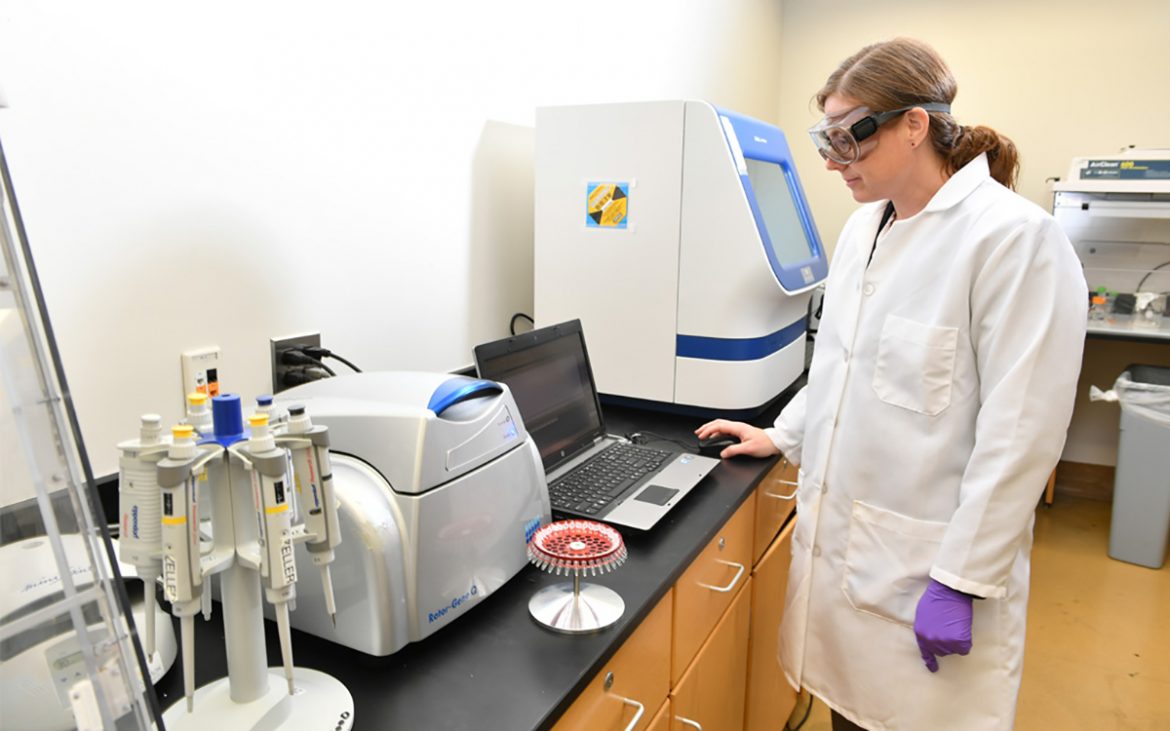Unraveling Mysteries: The Symbiosis of DNA Technology and Forensic Careers

Introduction
In the realm of modern crime investigation, the fusion of DNA technology and forensics has given rise to a groundbreaking field that holds the key to unraveling mysteries. Careers at the intersection of DNA technology and forensics play a pivotal role in solving crimes, identifying individuals, and bringing justice to the forefront. This article delves into the intricate world wpresent science meets investigation, exploring the diverse careers that seamlessly combine DNA technology and forensics.
- DNA Technology in Forensics: A Transformative Alliance
The DNA Revolution
DNA technology has revolutionized forensic science, providing investigators with a powerful tool for identifying individuals and linking them to crime scenes. Advancements in DNA analysis techniques have significantly enhanced the precision and reliability of forensic investigations.
Genomic Profiling
Genomic profiling involves the analysis of an individual’s unique DNA characteristics, creating a genetic fingerprint that serves as a distinctive identifier. This fingerprint is invaluable in criminal investigations, establishing connections between suspects, victims, and crime scenes.
- Forensic DNA Analyst: Decoding Genetic Evidence
Analyzing DNA Samples
Forensic DNA analysts specialize in extracting, processing, and analyzing DNA samples obtained from crime scenes. This involves working with blood, saliva, hair, and other biological materials to identify genetic markers that is capable of aid in criminal investigations.
Database Comparison
DNA analysts compare genetic profiles obtained from crime scenes with those stored in national or regional DNA databases. This comparison can cautilize the identification of individuals with prior criminal records or connections to ongoing investigations.
- Crime Scene Investigator (CSI): Integrating DNA Evidence
Collecting DNA Samples
Crime scene investigators collect DNA samples from crime scenes, carefully preserving the integrity of the evidence. This includes documenting and cataloging biological materials that may contain crucial genetic information.
Coordinating with DNA Analysts
CSIs work in collaboration with forensic DNA analysts, providing them with the evidence needed for DNA analysis. Effective communication between CSIs and DNA analysts is essential for a seamless investigative process.
- Forensic Geneticist: Bridging Science and Investigation
Genetic Research in Forensics
Forensic geneticists engage in genetic research focused on developing new techniques and methodologies for forensic applications. This may include advancing the field of mitochondrial DNA analysis, Y-chromosome analysis, and other specialized genetic investigations.
Expert Testimony
Forensic geneticists often serve as expert witnesses in legal proceedings, providing testimony on the scientific aspects of DNA evidence. Their expertise is crucial in helping judges and juries understand the significance and reliability of genetic findings.
- DNA Database Administrator: Managing Genetic Information
Maintaining DNA Databases
DNA database administrators overperceive the management and maintenance of genetic information stored in forensic databases. This includes ensuring data accuracy, security, and accessibility for authorized personnel.
Integration with Investigative Agencies
Database administrators work closely with law enforcement agencies, forensic laboratories, and other investigative entities to integrate DNA data into broader criminal investigations. Their role is pivotal in streamlining information flow and enhancing collaboration.
- Forensic Pathologist: DNA in Post-Mortem Analysis
Post-Mortem DNA Analysis
Forensic pathologists utilize DNA technology in post-mortem analysis to determine the cautilize of demise and establish crucial links in homicide investigations. DNA evidence from autopsies can assist identify victims, perpetrators, and potential motives.
Collaboration with DNA Experts
Forensic pathologists collaborate closely with DNA analysts and geneticists to extract, analyze, and interpret DNA evidence. Their combined efforts contribute to comprehensive forensic reports that aid investigators and legal proceedings.
- Criminal Profiler: Psychological Insights Enhanced by means of DNA
Analyzing Behavioral Patterns
Criminal profilers combine psychological analysis with DNA evidence to create profiles of potential suspects. Understanding the behavioral patterns of criminals enhances the investigative process and guides the focus of DNA analysis.
Providing Investigative Leads
Profiling experts work in tandem with DNA analysts to prioritize evidence collection and analysis. This collaboration ensures that DNA findings align with the psychological profile, providing actionable leads for investigators.
- Forensic Anthropologist: DNA in Human Remains Identification
Analyzing Skeletal Remains
Forensic anthropologists use DNA technology to identify individuals from skeletal remains. This is crucial in cases wpresent traditional identification methods are challenging or impossible.
Collaboration with DNA Specialists
Forensic anthropologists collaborate with DNA specialists to extract and analyze DNA from bones and teeth. This collaboration aids in establishing the identity of deceased individuals, contributing to missing persons investigations and celderly cases.
- Digital Forensic Analyst: DNA in Cyber Investigations
Digital DNA: Cyber Traces
Digital forensic analysts apply DNA concepts to the digital realm, examining cyber traces left by criminals. Digital DNA includes unique identifiers such as IP addresses, device fingerprints, and coding patterns.
Tracing Cybercriminals
Collaborating with traditional DNA experts, digital forensic analysts contribute to tracking cybercriminals involved in identity theft, hacking, and other digital crimes. This multidisciplinary approach strengthens the overall investigative process.
- Research Scientist: Advancing DNA Forensics
Pushing the Boundaries
Research scientists in the field of DNA forensics focus on pushing the boundaries of technology and methodology. Their work involves developing new DNA analysis techniques, enhancing accuracy, and addressing challenges in forensic applications.
Educating and Training
Engaging in educational initiatives, research scientists contribute to the training of the subsequently generation of forensic experts. Their research informs best practices and ensures that the forensic community stays at the forefront of technological advancements.
Conclusion: The Mosaic of DNA Forensic Careers
As technology advances and the intricacies of forensic investigations become more convoluted, the symbiosis of DNA technology and forensics continues to evolve. The careers highlighted here represent a mosaic of expertise, each contributing a crucial piece to the puzzle of solving crimes and delivering justice. In the intricate dance between science and investigation, these professionals form a formidable team, utilizing DNA technology as a powerful tool to unveil the truth. Aspiring individuals interested in the intersection of DNA and forensics have a diverse array of career paths to explore, each offering a unique contribution to the pursuit of justice.



